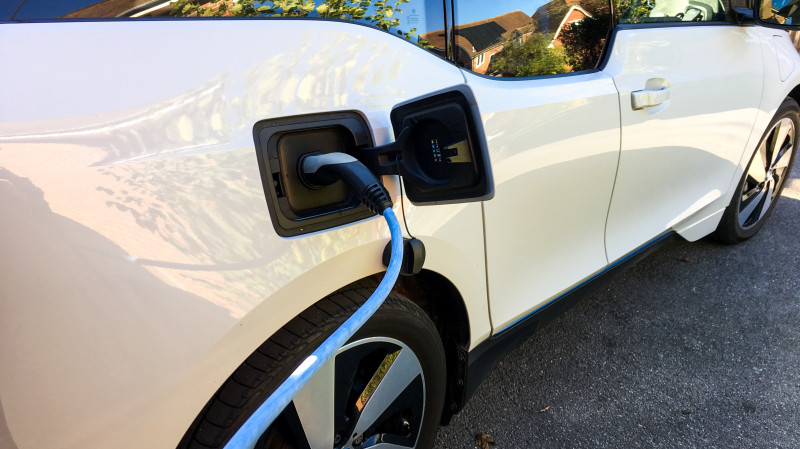You are here: Home electric car chargers: a guide
Home charge points let you recharge an electric car quickly and easily from the comfort of your own home. No more queuing at petrol stations!
Electric is the future
While die-hard petrolheads may scoff at the thought, electric is the future. Right now, there are tiny numbers of electric vehicles on the road and they make up only 5% of all new cars sold but that’s about to change. Auto companies are making big investments in them. Electric cars are about to get a lot speedier and go a lot further on a charge. Meanwhile, governments are taking steps to boost electric vehicle (EV) ownership. Measures include all new homes in England to be built with car chargers, so they are “electric car ready.”
Are electric vehicles really greener?
Traditional fuel cars produce high levels of carbon emissions that contribute to pollution, greenhouse gases and climate change. Fully electric cars, on the other hand, don’t produce any carbon emissions, promising cleaner air. But are electric vehicles really greener? Doesn’t electricity that runs electric cars still need to be generated, often from burning fossil fuels, mainly natural gas and coal? That’s true in part, but the way that electricity is generated is fast-changing. Renewable technologies use natural energy (wind, solar, marine, hydro) to make energy as opposed to fossil fuels. Renewables share of electricity generated in the UK shot up to 29 per cent in 2017 – and is expected to increase further.

Battery and range anxiety
The biggest problem potential owners have with electric vehicles is how far they can drive before ‘running out of juice’. If you’re thinking of buying an EV, it’s worth doing some sums before signing on the dotted line. Work out how many miles you drive on an average day and if it’s within the range that manufacturers quote you should be fine. As most electric cars have ranges of 100-300 miles, home charging is often enough for everyday use. Typically, drivers will charge their electric cars at home overnight, waking to a full battery. Longer journeys will require the use of public charging points. While some are free, others charge a small sum.
Charging at home
Charging an electric car can take as little as 30 minutes or as long as 12 hours, according to Pod Point. This depends on the size of battery and speed of charging point. Electric cars can be plugged into a standard household, three-pin plug. This means you can plug your electric car into the mains as you would any other domestic appliance. It’s advisable to ask an electrician to first check your household power socket can take the extra load.
For regular home charging, it’s speedier and safer to get a qualified electrician to install a dedicated electric car charging point in your home. They can work at a higher current, reducing the time it takes to charge your car. A 32-amp charging point can charge an electric car from flat to full in about 3.5 hours.
Home charge units have in-built safety features and do not place an additional load on other wires or circuits. They are weatherproof, so can be located on an external wall.
Government grant up to £500
It typically costs about £1,000 for a home charging point and installation, according to the Energy Saving Trust. Some electric car manufacturers provide the home charge unit free or at a discounted price. The UK government also offers a grant of £500 for purchasing and installing a home charging point using accredited suppliers. It’s available for most electric and plug-in hybrid cars (petrol or diesel engine and battery). The supplier will look after all the paperwork and claim the grant on your behalf. You can find more information here. https://www.gov.uk/government/collections/government-grants-for-low-emis...
What’s the cost of charging at home?
The cost of charging at home will vary depending on your tariff and time of day. For example, on Economy 7 tariff, an average overnight electricity rate is 13p per kWh. Fully charging a 30kWh Nissan LEAF will cost about £3.64 and give you about 115 miles range, according to Pod Point. Compared to filling up at a petrol station, it’s cheap.
Should I get a smart meter?
It makes a lot of sense to get a smart meter to show how much energy you are using. You will be using lots more electricity than previously to charge an electric vehicle and it will be important to find the cheapest tariff possible. The increasing installation of smart meters in homes is seen as a key element in ensuring the electricity grid can cope with the electric car revolution. Power companies want to avoid situations where millions of people come home and plug in their vehicles at the same time.